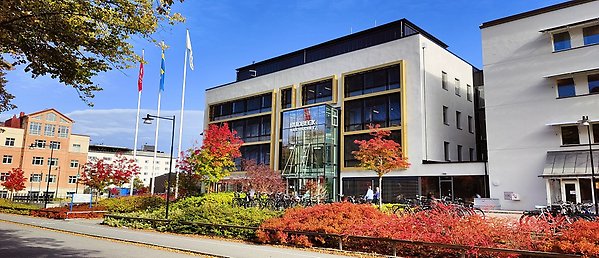[The Svedberg seminar] Mechanisms of Transcriptional Regulation of Drosophila & Mammalian Genomes
May 22, 2024 @ 15:15 – 16:15 CEST
John Lis
Professor of Molecular Biology and Genetics
Cornell University, USA
Bio
Dr, Lis received his B.S degree in Chemistry from Fairfield University, and his Ph.D. in Biochemistry from Brandeis University. His postdoctoral work at Stanford University focused on molecular genetics and was supported by a Helen Hay Whitney Foundation Fellowship. Dr. Lis joined the faculty at Cornell in 1978 and served as Chairman of the Section of Biochemistry, Molecular & Cell Biology in the 1990s. He is now the Barbara McClintock Professor of Molecular Biology and Genetics and a member of the American Academy of Arts and Sciences and the National Academy of Sciences. Dr. Lis’ group develops new approaches to study the molecular mechanisms of transcription regulation, and he uses these newly developed and existing technologies in both focused studies of highly-regulated genes and in comprehensive analyses of gene regulation of Drosophila and human genomes. A Harvey Lecture at Rockefeller University summarizes some of his past work that can be accessed using the following link. https://harveysociety.org/videos/video.php?series=114&lecture=1&wvideo=7810nzrdc0
Mechanisms of Transcriptional Regulation of Drosophila & Mammalian Genomes
Transcription by RNA Polymerase II (Pol II), the enzyme responsible for all mRNA synthesis, is highly regulated by protein factors at multiple steps in the transcription cycle. Two critical regulatory steps, whose regulatory integration is critical for the sophisticated gene regulation seen in multicellular eukaryotes, are 1) the recruitment of Pol II to promoters where it rapidly initiates transcription and can enter into a promoter-proximal, paused state 20-50 base pairs from the initiation site; and 2) the release of paused Pol II into productive elongation. Promoter-proximal pausing is dependent on protein complexes DSIF (DRB Sensitivity Inducing Factor) and NELF (Negative Elongation Factor) bind to Pol II early in transcription to stabilize pausing. Pause release occurs upon phosphorylation of Pol II, DSIF and NELF by the Cdk9, Cyclin T1 heterodimer P-TEFb (Positive Transcription Elongation Factor b). Several elongation factors, e.g., PAF1 and Spt6, engage with Pol II in its transition from its promoter-proximal pause to productive elongation. Although Pol II pausing is a key step in transcription regulation and has been extensively studied, the molecular mechanisms of pausing and pause release to productive elongation are far from being completely understood. Furthermore, recent studies have led to competing molecular mechanisms on the role of promoter-proximal pausing in the control of transcription. In this seminar, I will describe the evolution of our understanding of transcription regulation as well as describe our latest efforts to advance and resolve this understanding using a variety of state-of-the-art genomic and optical methods in Drosophila and mammals
Host: Anniina Vihervaara anniina.vihervaara@scilifelab.se

